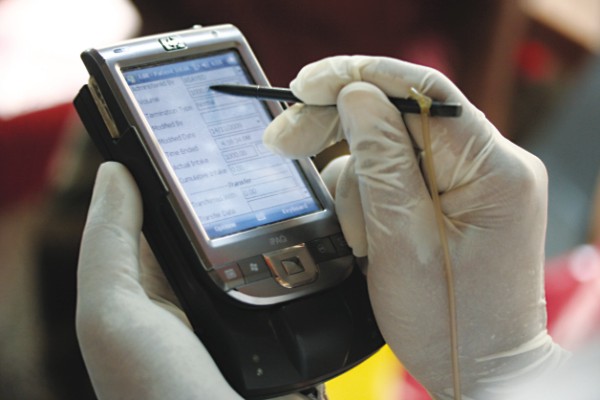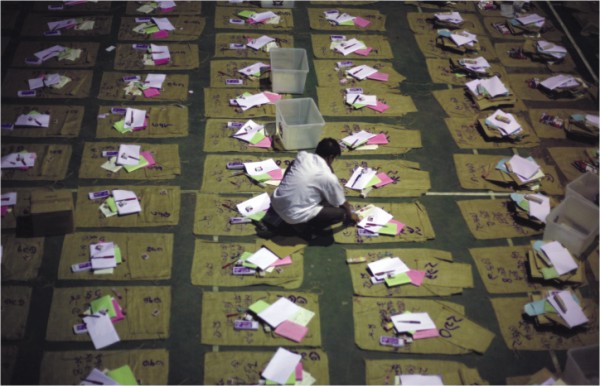
Inside
|
Digital Bangladesh: Anir Choudhury outlines how the state can use technology to help its constituents
The term e-governance is not new in Bangladesh. Since the 80s, we have been automating the functions of our government offices. Many government organisations boast success stories of automating internal processes such as human resource management and payroll processing, inventory management system, library management system, among several others. Millions of dollars of hardware was procured to set up server rooms, some of them state-of-the-art rivalling those in developed countries. Software has also added to the ICT arsenal used for automating our government business processes. Citizens naturally have the right to ask how much direct, or even indirect, benefit such internal automation has brought for them in improving the quality of services the government renders to citizens. Whether payroll processing of a government department becomes more efficient, whether government offices become more communicative or transparent because they are using more ICTs more frequently, or even whether file administration becomes quicker, have no bearing on citizens' lives unless the services they receive from the government come at a lower cost, take less time, and citizens have to make fewer trips, and run around to fewer desks. Citizens will at some point wake up to the reality that in the name of "modernisation," the government is wasting their hard-earned tax money. A story from India illustrates the power and potential of ICT in government service delivery. The famed National Informatics Centre (NIC) of India, which has been functioning since the mid 1970s, and has been instrumental for many federal and state level ICT-led automation, went through an evolution and transformed their ICT focus from internal automation to service delivery in the mid-2000s. The legendary Chandrababu Naidu, the "digital" chief minister of Andhra Pradesh, lost in the subsequent election because he failed to adequately address the needs of the citizens using ICTs, despite addressing the needs of the government officials using the same. Here in Bangladesh, the case of 20,000 sugarcane farmers in Faridpur and Jhenidah is a brilliant example of whether one needs to start with automation to end up in service delivery. Since 1932, purchase orders for sugarcanes, called "purjee," were sent out to growers on paper. Often taking an unpredictable amount of time to reach farmers, the purjee would sometimes get lost, and even fall prey to the unscrupulous practices of better connected farmers keen to ensure their own harvests a timelier -- and more valuable -- crushing schedule. The farmers receiving late notification would not be able to bring their harvest at the right time, losing vital income because of a loss of weight of sugarcanes, and in extreme cases, causing a total failure to sell the harvest. Furthermore, delays in purjee issuing, and the unpredictable delivery of sugarcanes they cause, would sometimes result in local mills running at below capacity, causing significant loss of public resources. The Digital Purjee Information Service, introduced in late 2009, augments the paper notification with an instant SMS notification that informs the grower that his purjee has been issued, and that he may start preparing his harvest for supply to the mills. The pilot is a joint initiative of the A2I Program of the Prime Minister's Office and Bangladesh Sugar and Food Industries Corporation of the Ministry of Industries. Around eighteen hundred sugarcane growers received purjee instantly via SMS service every day, and during the last sugarcane season, the mills did not have a single day of running below capacity. The citizen-centricity, pro-poor nature of this service was demonstrated in how the service was visualised. The end customers are sugarcane farmers, and not the sugar mill management. If we started with the management perspective, we would have surely begun with internal automation -- payroll processing, accounts automation, inventory management, inputs and outputs tracking and many other such things. We would ultimately get to the purjee systems perhaps after doing expensive and time-consuming internal automation; or perhaps not if the funds ran out, management changed focus, ICTs took a lower priority for various reasons, or the end customers were deemed unimportant. Since in this case we started with the end customers' perspective, the largest citizens' benefits were achieved with very little investment in hardware, software and human resources support. In contrast, internal automation projects typically require much larger investment in all these three. It is vital to realise that Digital Bangladesh is not a promise for a different world. It is actually a promise for the same world, but much better, much quicker, much more responsive and less costly. At the same time, it is a different world to different people. To a student, it is higher quality of education and being market-ready; to a farmer, it is right information at the right time at the right place; to a patient, it is access to quality healthcare without having to stand in long queues for days; to a serving government officer, it is triumph of merit and performance over connections; to a retired government officer, to a freedom fighter, and to a widow, it is delivery of safety nets and pensions transparently. To all, it is services they deserve and should expect at their doorsteps. Such a world is only possible if the focus for all "Digital Bangladesh" initiatives focus primarily on the end customers' perspective and not an internal automation perspective in the beginning. Automation should be done as much as is needed to serve the end customers. Bangladeshis have grown to expect that the government will dispense public information and services to them as a favour and not as a part of their responsibility. Moreover, to avail themselves of this favour, they have to go long distances to government offices, stand in long queues in rain and sun, and sometimes give in to rent seeking. If they are lucky, they will receive the information and services in one visit. However, most will end up making multiple trips, spending on travel and overnight accommodation a few times the "official" cost of accessing the service. A child is born into a culture where money or powerful connections are necessary to expedite service delivery and rarely finds out in his or her lifetime that most of these services are inalienable rights. In the nondescript backwaters of Bangladesh, ICTs are changing the age-old unpopular culture, along with the mindset of government service providers. In a matter of eighteen months, tens of e-services have sprung up throughout the country. Citizens can now pay their electricity, gas and phone bills through mobile phones, download English lessons, and consult with a doctor remotely. New ICT-empowered service delivery outlets are being established with financing from local entrepreneurs, NGOs and the government in Union Parishads, schools and post offices. UNDP-supported Access to Information (A2I) Program at the Prime Minister's Office is the fundamental catalytic force behind much of this change. The program is based on the premise that ICTs provide a natural vehicle for re-engineering business processes for service delivery. The A2I program has worked closely with all secretaries of the government to help identify over 50 e-citizen services that are undergoing implementation by the respective ministries/divisions. Beyond the secretaries, a network of change agents is being developed and nurtured by the A2I program in collaboration with the Ministry of Science and ICT. This change agent network consists of over 50 joint or additional secretary level officers called e-governance focal points, one in each ministry or division of the government, all DCs and UNOs. Public representatives in the parliament and the local government institutions such as the upazilla parishads and union parishads are also being included in the change agent network. The drivers for improving services using ICTs are becoming widely clear in Bangladesh. Demonstration effect has already taken place through the launching of many of the 50-plus "quick win" services. Cost-effectiveness of such service delivery, and the hitherto unforeseen reach of services offered through ICTs, are instrumental to this demonstration. The 306 action items in the ICT Policy 2009 are directly or indirectly related to improving service delivery. Over half of the items directed responsibility on all the service provider organisations within the government to improve healthcare, education, agriculture, local government services, social safety nets, among many others. Legal obligations mandated by the recent promulgation of Right to Information Act, Local Government Strengthening Act and ICT Act also drive the need for using ICTs in service delivery.
Having sung the praise of using ICTs for service delivery, I must conclude by saying that automation of business processes is necessary. But I must reiterate that such automation must be done by planners and service designers (or re-designers) by looking at the service delivery process through the lens of the common citizen wearing his or her shoes. Then only will it be obvious what should be automated, and more importantly, where to start. The identification of the starting point is half the battle to win the hearts of the citizens, and give them what they deserve and what they should expect from the government. That is the Digital Bangladesh promise. Anir Choudhury is Policy Adviser, Access to Information Program, Prime Minister's Office.
|

